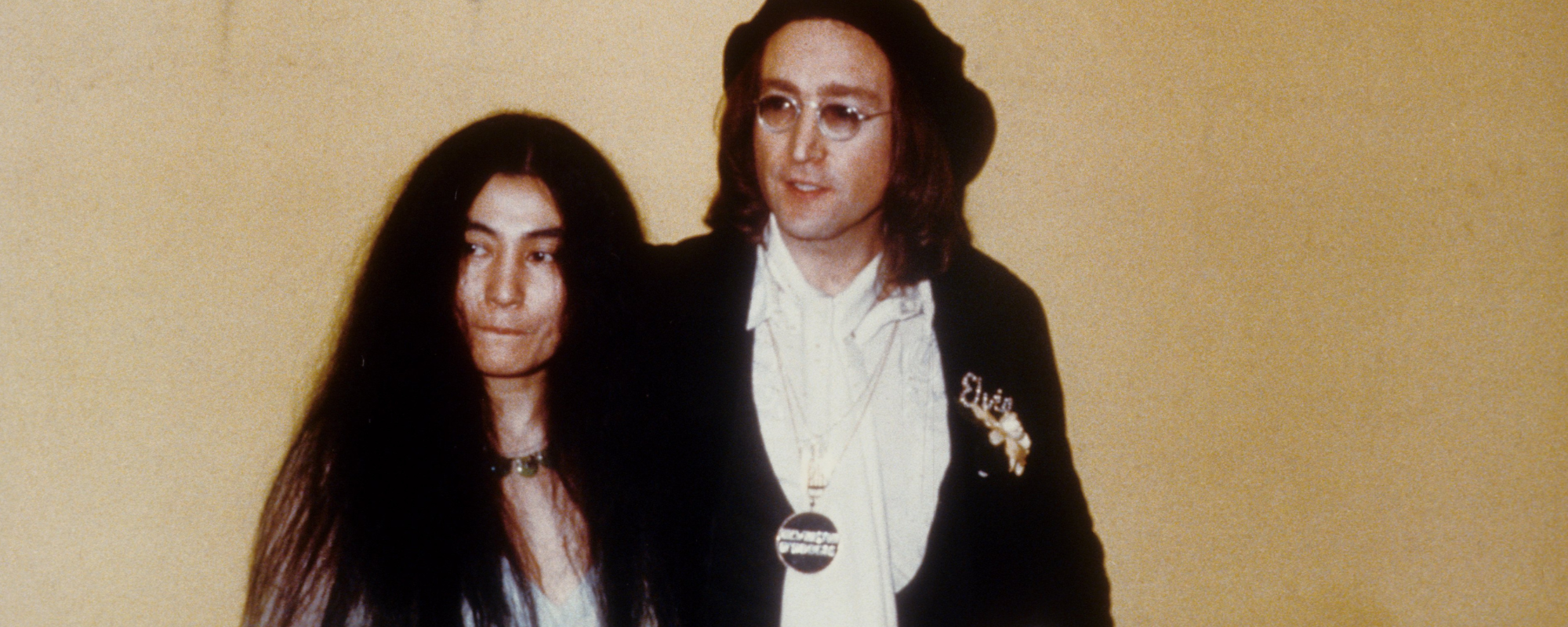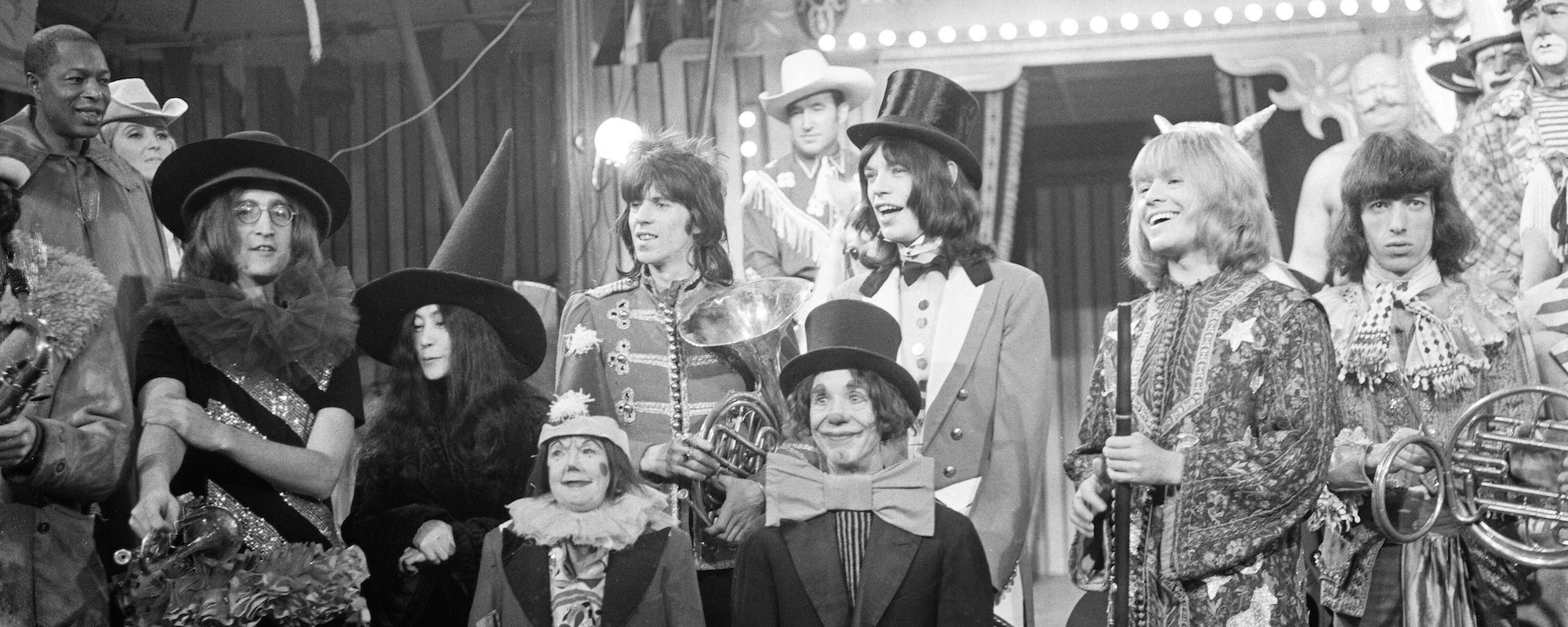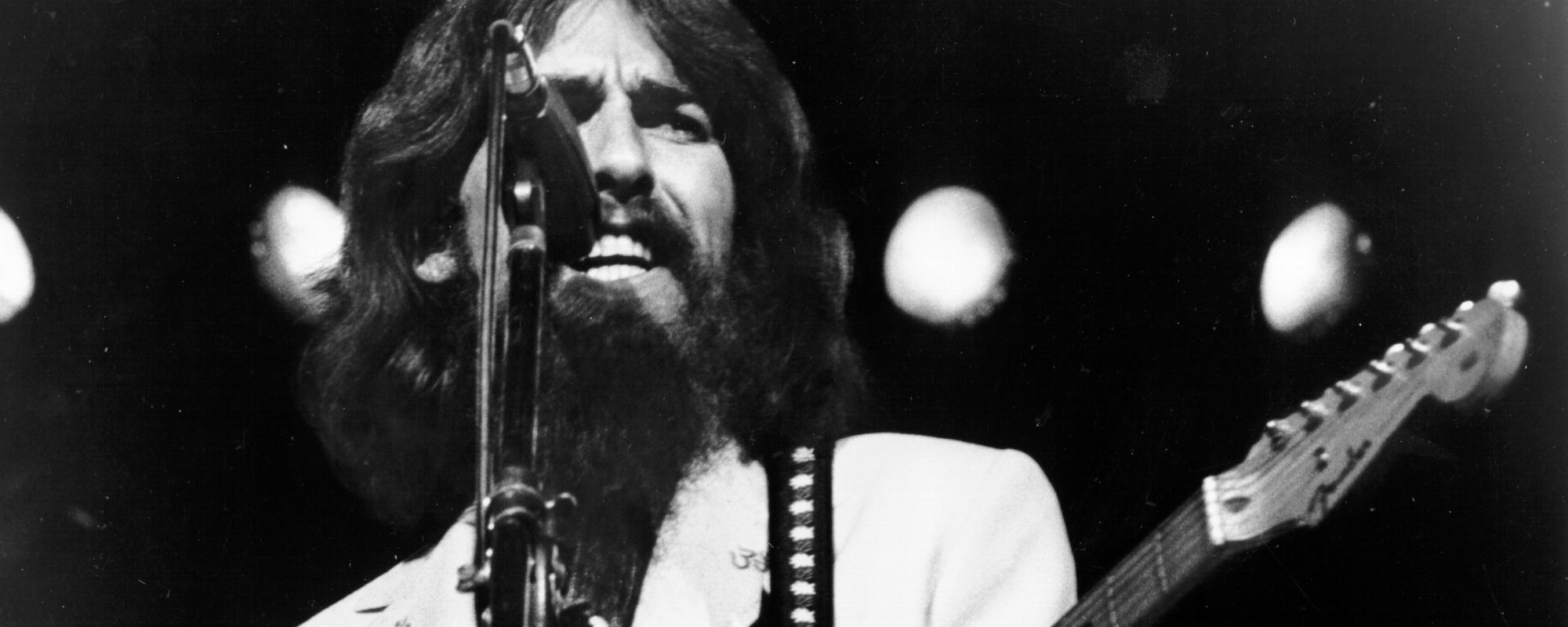On February 7, 1964, the English rock and roll band The Beatles stepped onto U.S. soil for the first time. As they stepped off their flight from Heathrow Airport in London to John F. Kennedy International Airport, the quartet was greeted by a swarm of eager fans.
Videos by American Songwriter
At the time, Paul McCartney, John Lennon, George Harrison, and Ringo Starr were all in their early twenties and were still getting used to the band’s sudden success. They earned a streak of hits in the U.K. following the release of The Beatles’ debut album Please Please Me in 1963. But the band’s arrival in America helped elevate them from a regional success to a true global phenomenon.
[RELATED: Behind the Inquisitive Meaning of “When I’m Sixty Four” by The Beatles]
According to The History Channel, 3000 fans were on hand at the airport to get a glimpse of the “Fab Four.” The excited crowd filled every inch of the terminal rooftop and airport tarmac, screaming joyfully. As the band made its way through the chaos, reporters were on hand to document the chaotic scene.
That moment marks the unofficial start of the so-called “Beatlemania” craze, which was elevated even further by the band’s appearance on The Ed Sullivan Show two days after their arrival. Their debut appearance on American television occurred a few months earlier via a recorded feature segment on the NBC news series The Huntley–Brinkley Report. A few weeks later, their song “I Want to Hold Your Hand” began taking over the airwaves on radio stations nationwide. By the time The Beatles made their physical debut in America, the single had already become a No. 1 hit.
The New York Times reported that a mind-boggling 73 million viewers tuned into The Beatles’ performance on The Ed Sullivan Show. Two days later, the band traveled to Washington, D.C., for their first full concert on U.S. soil.
Nearly six decades later, most foreign musical acts’ first-time trips to the U.S. are uneventful. But for The Beatles, their first moments in America now serve as an important marker of rock and roll music’s impact during that formative decade.
Photo by William Lovelace/Daily Express/Hulton Archive/Getty Images












Leave a Reply
Only members can comment. Become a member. Already a member? Log in.